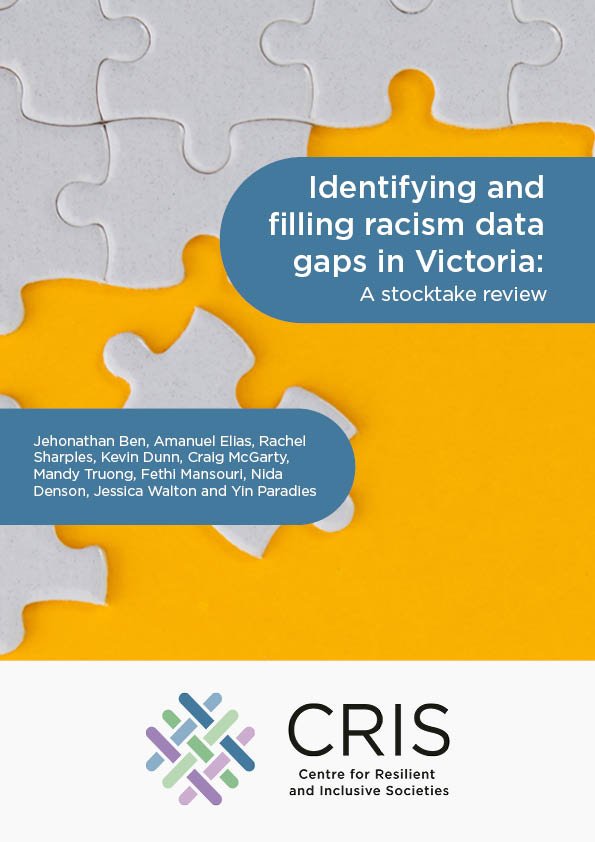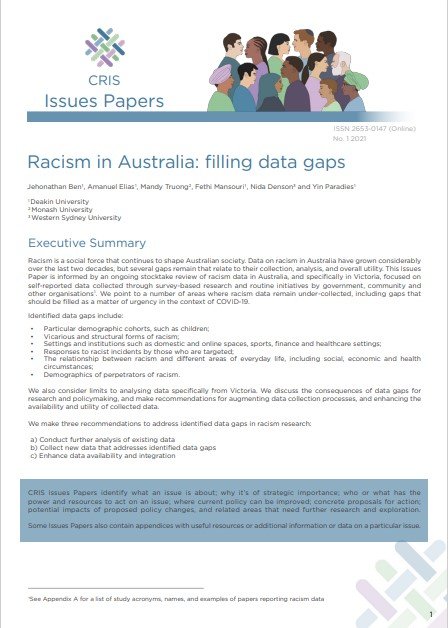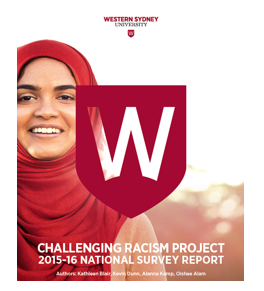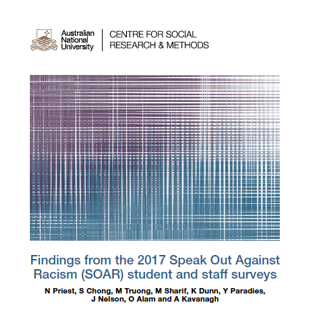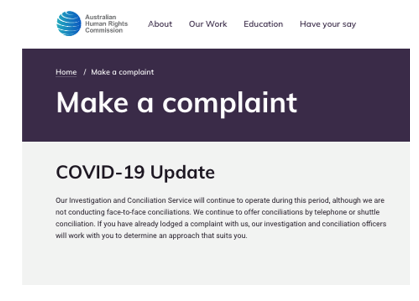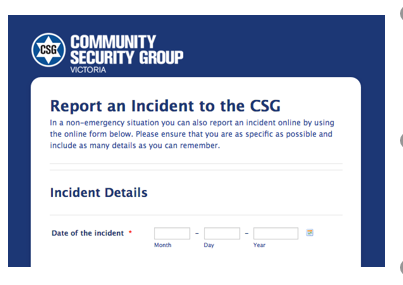Identifying and filling data gaps on racism in Victoria
Identifying and filling data gaps on racism in Victoria
What data do we have about where and how racism happens in Victoria? About who perpetrates it and who is most affected? Perhaps more importantly, what don’t we know? What gaps remain, including areas of life where racism data are insufficiently collected?
This project focused on enhancing our understanding of racism by reviewing and organising existing data and identifying gaps in data collection, analysis and uses.
We used this knowledge to update and extend existing datasets, and to orient anti-racism action and policy. The project consisted of three objectives:
1. An overview, summary and synthesis of racism data
2. Identify gaps in racism data collection, analysis and uses
3. Recommend how to fill those gaps and orient anti-racism
As a result of this project, we have:
Completed a stocktake review of racism data. Our full report and a policy summary are available here.
Conducted a systematic review and meta-analysis of the prevalence and impact of racism in Australia. A study protocol is available here.
Publications
Recommendations
We recommend four interconnected ways to fill racism data gaps for researchers, organisations and policymakers working to address racism:
1: Further analyse existing data
Important questions about racism may be addressed by analysing existing data, including who perpetrates racism? How does racism vary across Victoria? And, what are the effects of racism?
2: Collect and analyse additional data
Where critical questions cannot be addressed by existing data, additional data should be collected and analysed. This must be done in discussion with groups affected by racism and in ways that minimise over-researching. Priority should be given to expanding existing surveys that already examine racism, especially longitudinally. New data should ultimately contribute to anti-racism and social change.
3: Enhance data availability and integration
Enhance data availability by making data sets and sources open access via central repositories, publishing in open access journals, and through data custodians. Organisations could receive permission to share some deidentified data. The metadata should be made externally visible.
4: Improve racism data policies
Improve policies that relate to the collection, analysis, reporting and overall management of racism data, to ensure the necessary data exist and are available for analysis. We call for a national data management plan and for mandating key agencies to collect and report on racism and inequalities, in areas like health, education, employment and justice. We also recommend an urgent analysis of COVID-19 disparities.
Read the summary and recommendations
If these findings are useful for your work, or you would like to discuss these findings with the team, send us an email and we will be in touch.
What’s next?
We will work with policy makers and other organisations to share our findings and implement our recommendations.
The project is currently being broadened to a review and meta-analysis of racism in Australia, to understand racism’s prevalence and impact across states, over time, and among various affected groups.
Project Resources
Examples of Racism Data Resources
- All Together Now - Media Monitoring Project
- Islamophobia Register Australia - Online Complaint Form
- Victorian Equal Opportunity and Human Rights Commission (VEOHRC) - Online Complaint Form
- Blair, K., Dunn, K., Kamp, A., & Alam, O. (2017). Challenging Racism Project 2015-16 National Survey Report. Sydney: Western Sydney University.
- Markus, A. B. (2019). Mapping social cohesion: The scanlon foundation surveys 2019. ACJC Monash University.
- Priest N, Kavanagh A, Bécares L, King T. (2019) Cumulative Effects of Bullying and Racial Discrimination on Adolescent Health in Australia. Journal of Health and Social Behavior, 60(3):344-61.


